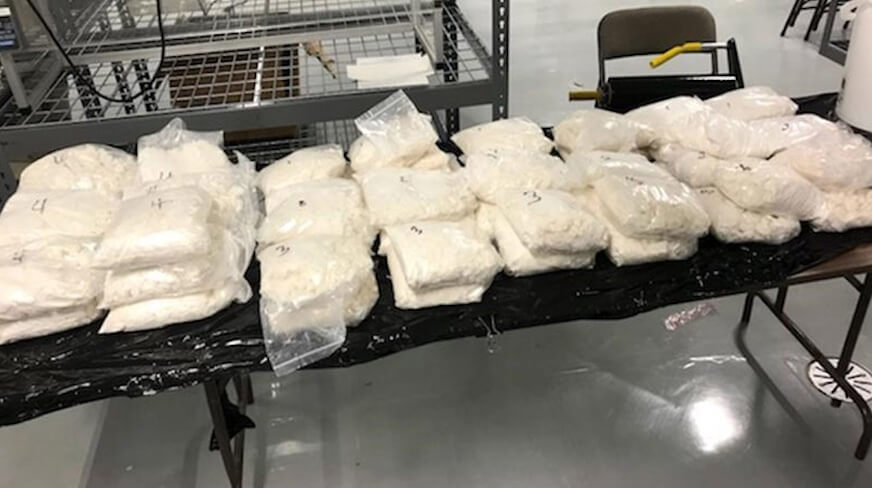Pennsylvania has a serious drug problem, with heroin and opioid addiction now declared a “disaster” by Gov. Tom Wolf. The state has seen a steadily rising rate of opioid-related overdose deaths over the years; however, in 2018, that number did not increase for the first time.
“The Pennsylvania State Police remains an integral part of the Opioid Command Center, working to fight the heroin and opioid crisis as part of Governor Tom Wolf’s disaster declaration,” Pennsylvania State Police said in a report on drug seizures released Monday.
To do their part to combat the crisis, Pennsylvania State Police took an astonishing $66 million of drugs off the streets in 2018 – $17 million of it in just the last three months of the year.
Seizures included massive quantities of fentanyl, the deadly cutting drug that is dozens of times stronger than heroin and is considered one of the driving factors behind skyrocketing deaths from opioids.
The $66 million worth of drugs, seized over 2018, including 197 pounds of heroin and fentanyl, came from highways and Pennsylvania communities.
From Oct. 1 to Dec. 31 alone, a recent police report shows, state troopers seized about $16,982,054 worth of drugs, including cocaine, methamphetamines, heroin, fentanyl, and other drugs.
That includes nearly 224 pounds of cocaine ($4,028,940), 26 pounds of heroin ($702,270), 50 pounds of fentanyl ($796,160) and 28,963 miscellaneous narcotic pills ($724,075).
Wolf first made a “disaster declaration” relating the opioid crisis in January 2018 and has renewed it four times.
The declaration brought 16 state agencies to work together through an Opioid Command Center, and has let the state use Medicaid funding for treatment for 12,000 individuals.
In December, the state gave out 6,000 naloxone kits for free to citizens around the state.
Pennsylvania Secretary of Health Dr. Rachel Levine previously signed a standing order in April authorizing a “prescription” for Naloxone for anyone in the state who needs to obtain the medicine to help a loved one struggling with addiction from any pharmacy, which will remain active indefinitely.



























